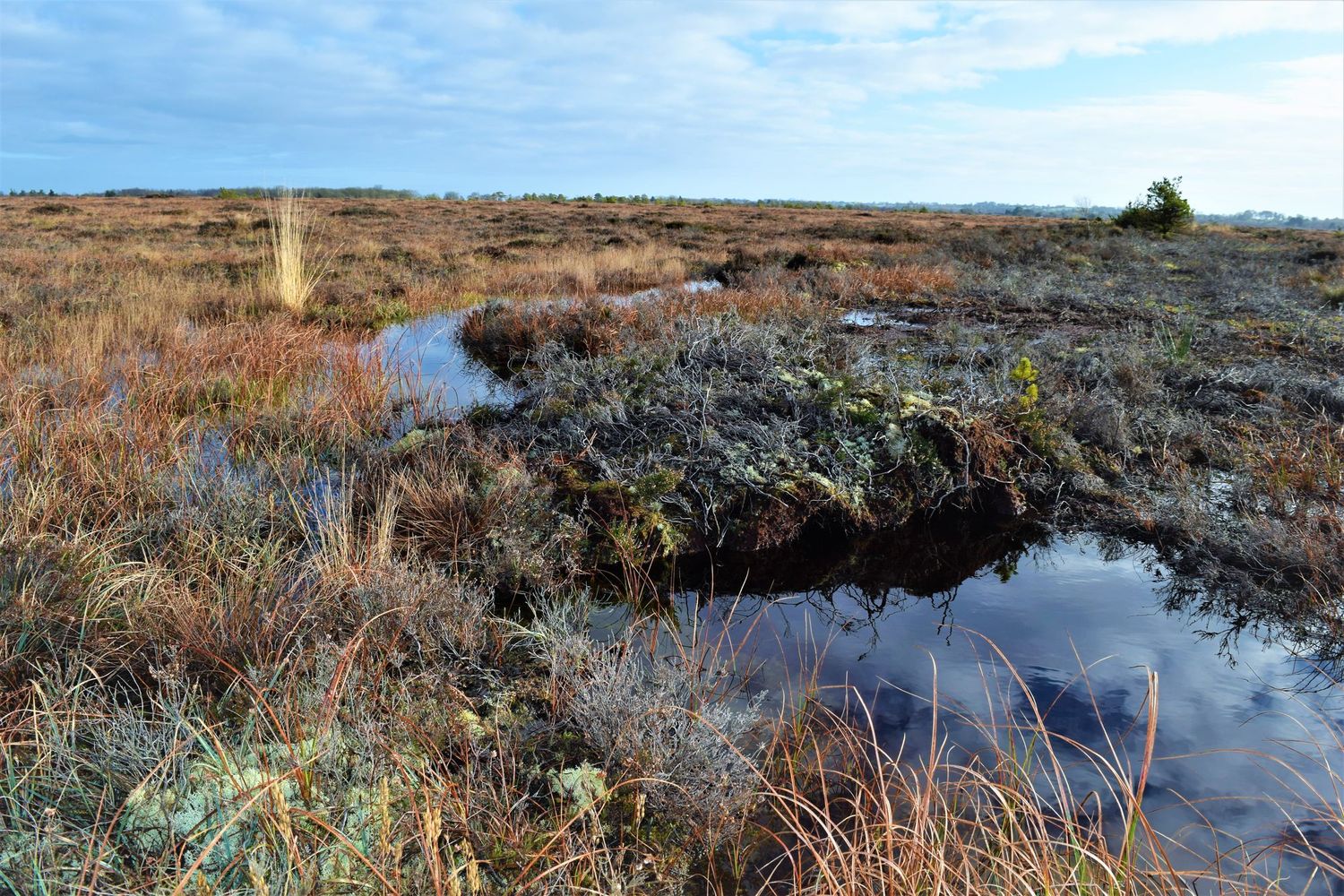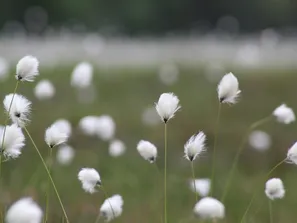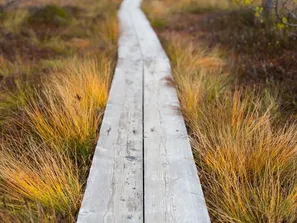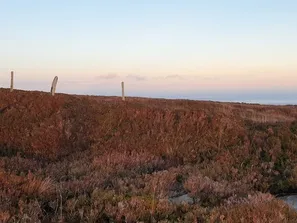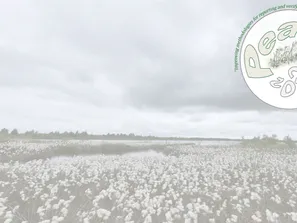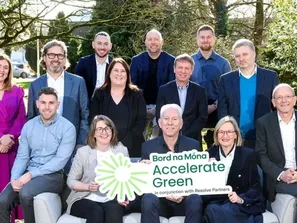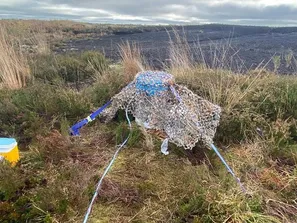12 Nov 2024
Planting Sphagnum across re-wetted deep peat cutaway bog is a key objective of Pillar 1 of the Peatlands and People LIFE Integrated Project.We are planting Sphagnum moss as a peatland restoration measure to speed up the trajectory towards the development of Sphagnum-rich embryonic raised bog vegetation.
Bord na Móna have been working in partnership with Beadamoss on trialling the growth of different types of Sphagnum plugs.This is to explore the potential for the mechanisation of Sphagnum planting, which is currently undertaken by hand. A small pilot using a combined Sphagnum and grass plug has been developed in a conventional seed tray that could be potentially used has been carried out.
As Sphagnum moss does not have a root system like vascular plants, it was difficult to grow it using conventional horticultural seed trays. Instead, the Sphagnum moss is grown via hydroponics and provided in small individual clumps (referred to as ‘plugs’), which are planted by hand. A recent trial has used grass seed, sown among the Sphagnum moss, which produces a root system within the seed tray, binding the moss together. The grass root system provides weight that could allow use in existing planting machinery that could be modified to facilitate planting in rehabilitated peatlands. The adaption of existing planting equipment is also commencing shortly by Bord na Móna engineers.
If successful, this mechanised approach to Sphagnum planting would mean faster planting, reduced cost and facilitate planting at a larger scale. Bord na Móna plan to commence the mechanised planting trial in 2025. Developing a mechanised approach to Sphagnum planting would add to the various methodologies already being used by Bord na Móna.
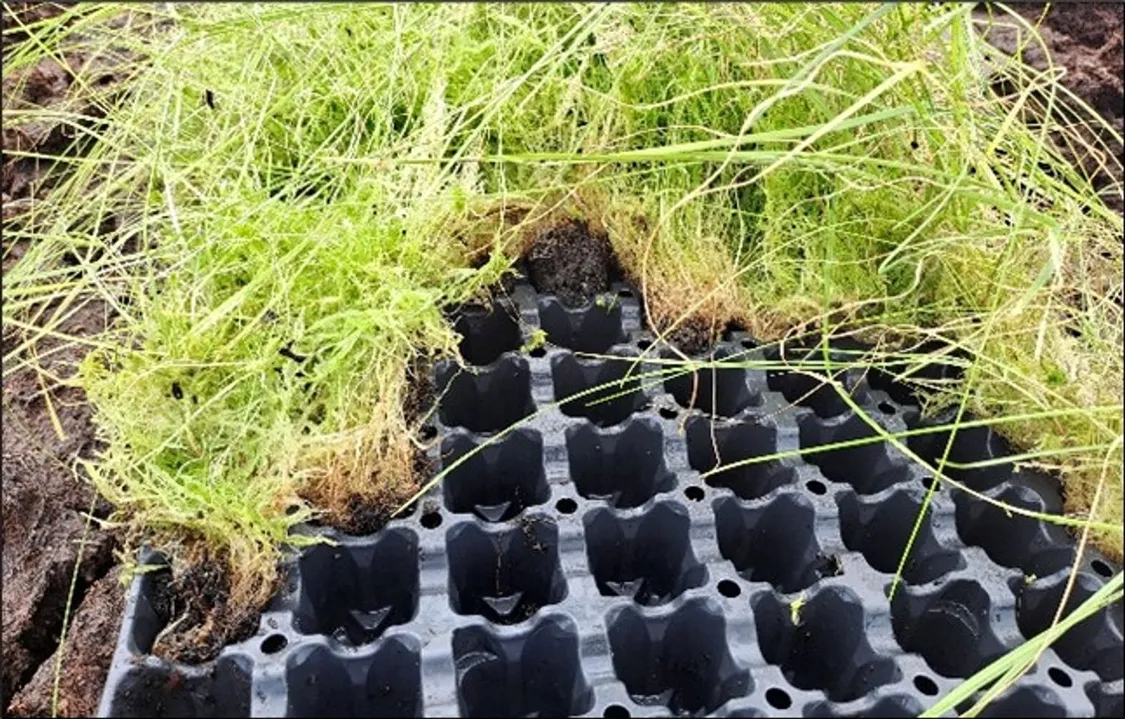
Example of conventional seed tray to grow combined Sphagnum moss and grass seed.
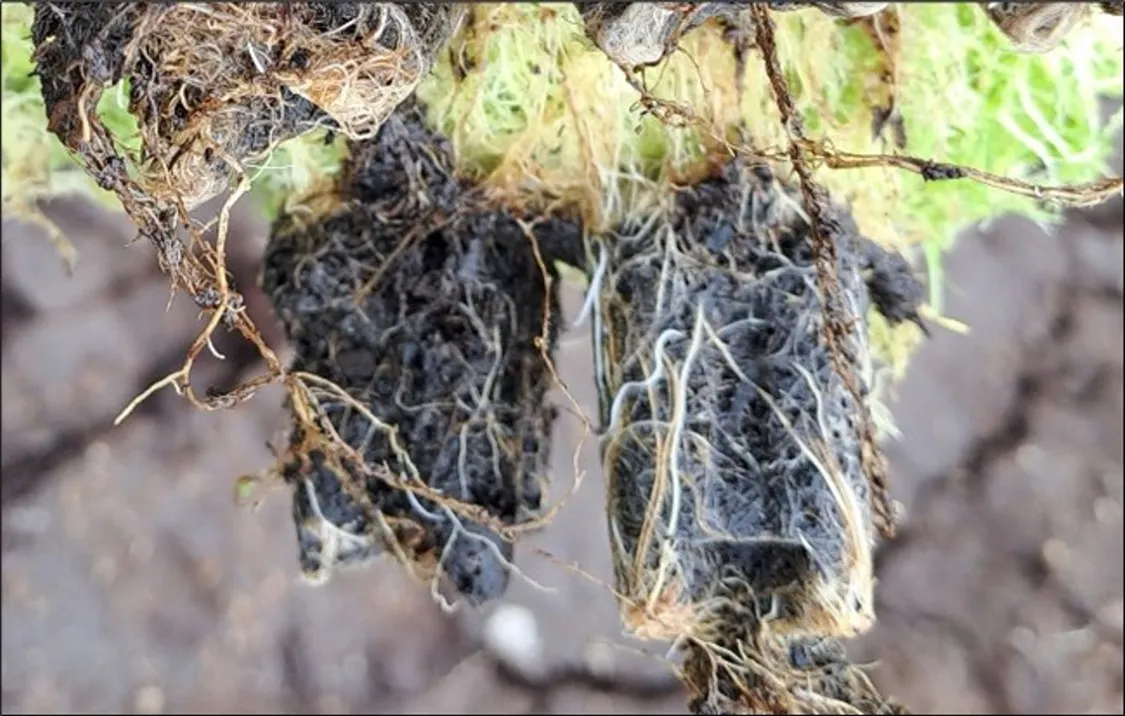
Example of the grass seed plugs that can be used in conventional planting machinery.
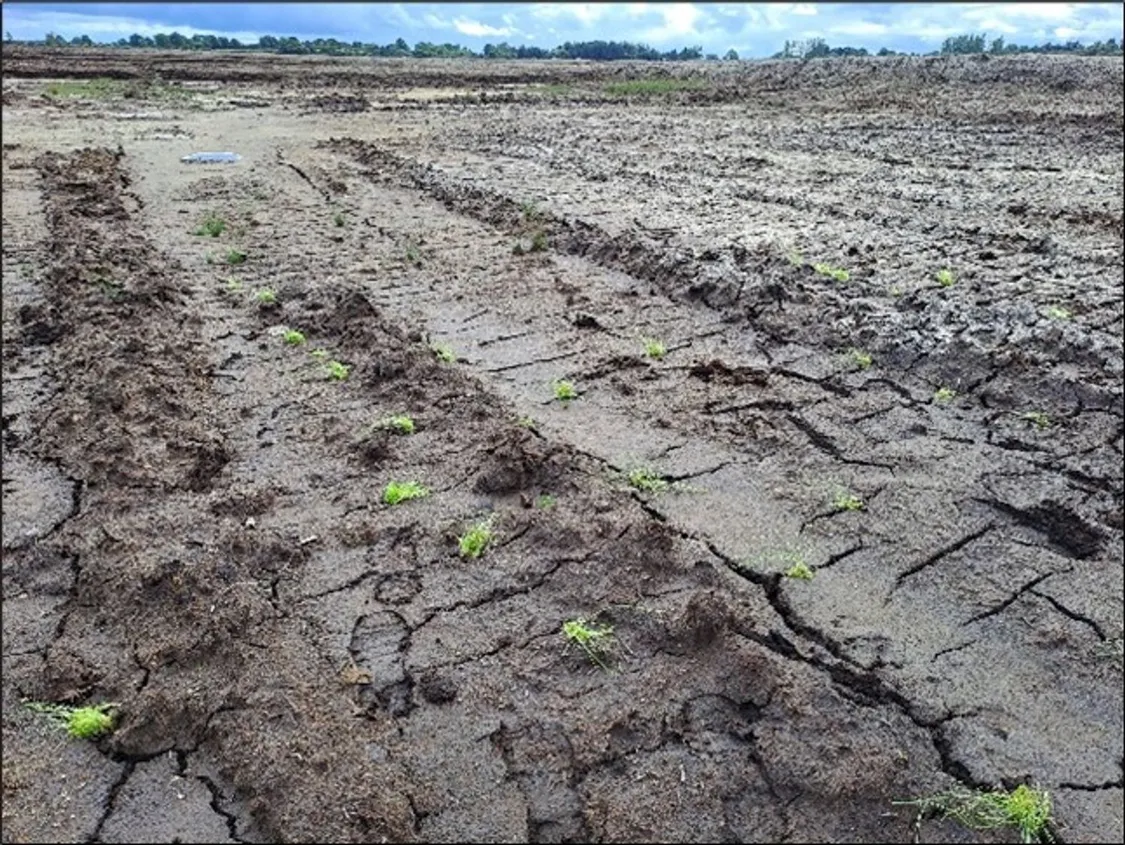
Combined Sphagnum and grass seed plugs planted by hand following completion of growing trial and in advance of receipt of mechanical planter.
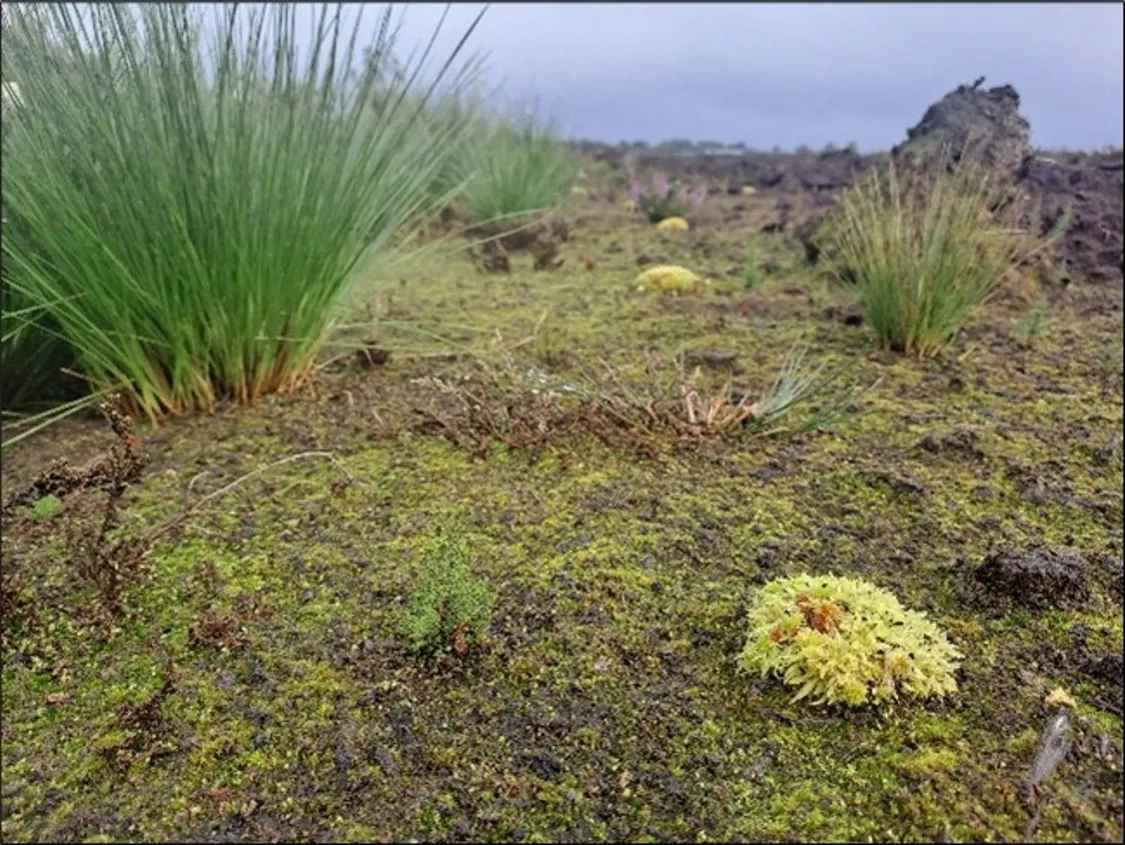
Sphagnum moss plug c. 5 months post planting. Growing strong on re-wetted peatland at Glebe bog, Co. Offaly.
Another trial has focused on speeding up the revegetation of the deeper bare peat. The main objective is to plant Bog cotton (Eriophorum angustifolium) plugs to speed up vegetation colonisation over bare peat.Bog cotton and other species will colonise naturally eventually, but planting Bog cotton could speed up the trajectory towards developing pioneer Sphagnum-rich embryonic raised bog vegetation. This aims to provide some initial shelter to Sphagnum plugs that could be planted in the future. Ongoing monitoring has shown that where Sphagnum has been planted among Bog cotton and other pioneering species, it has increased growth rates as it ‘sprawls’ through the vegetation due to increased shelter.The Bog cotton plugs are grown from seed sourced from nearby Bord na Móna cutaway.
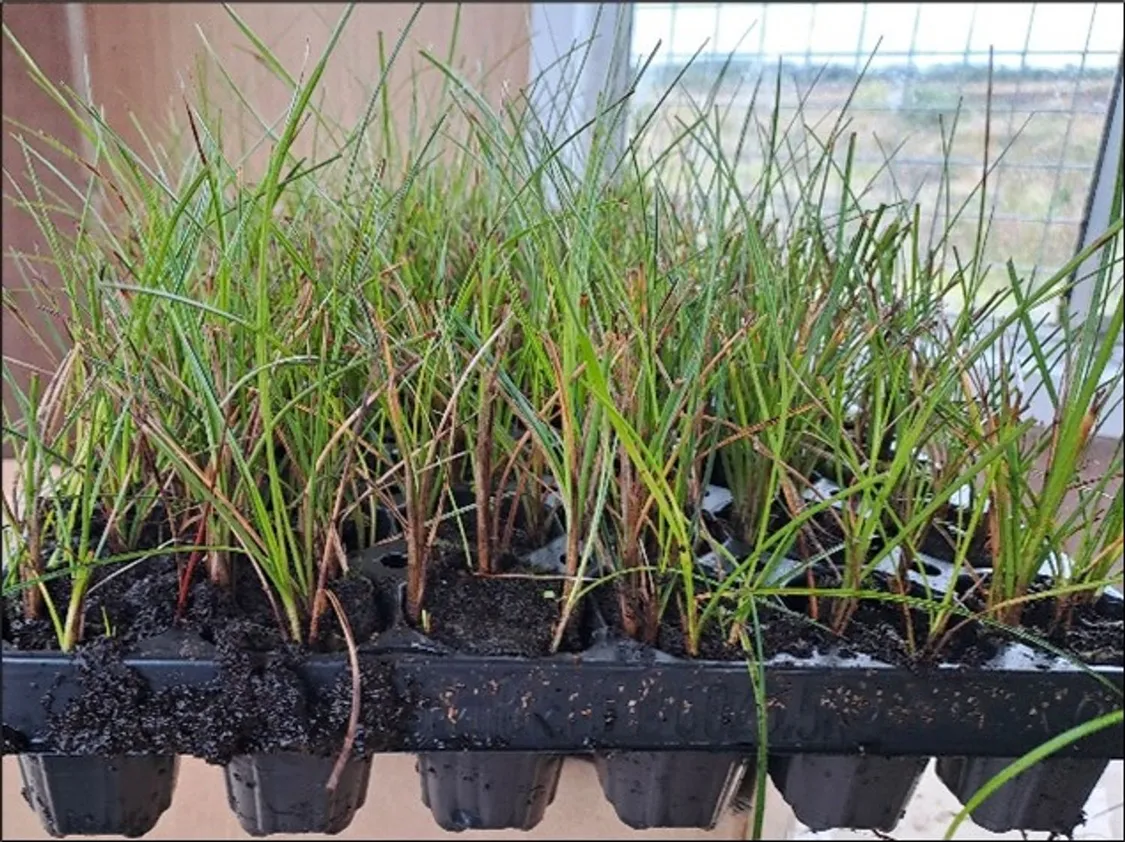
Bog cotton (Eriophorum angustifolium) plugs grown in conventional seed trays from locally sourced seed.
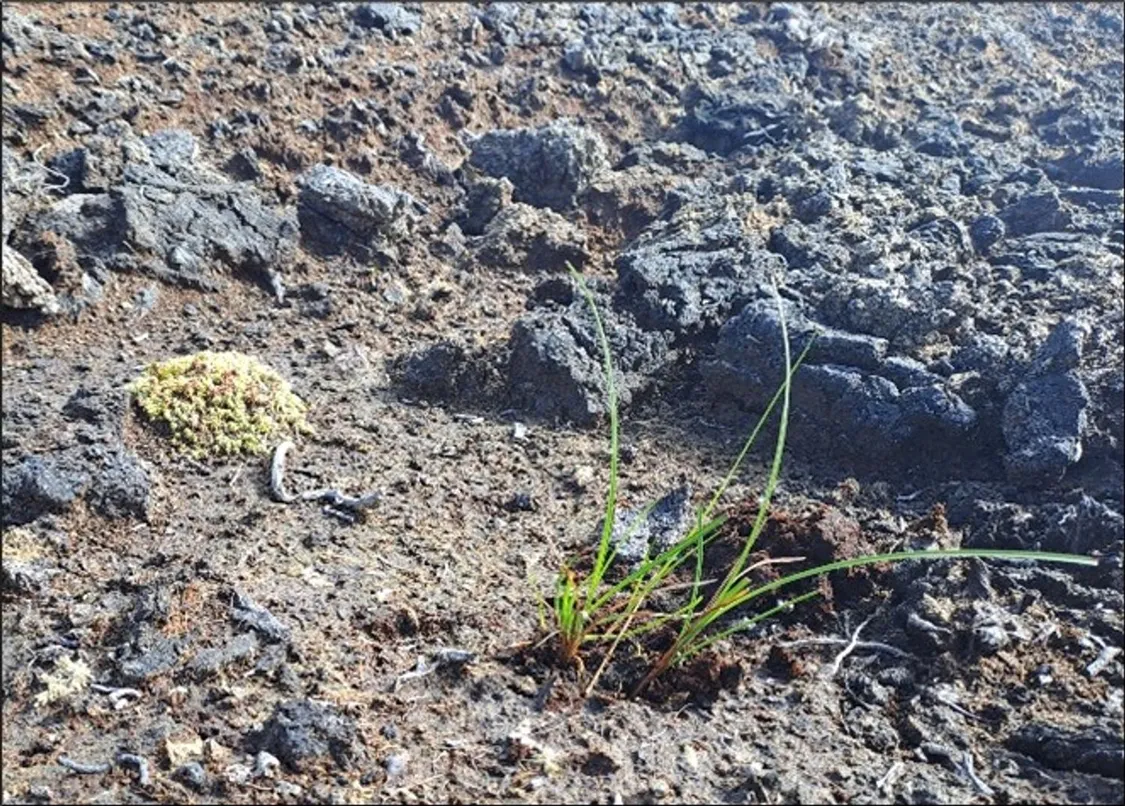
Example of Bog cotton plug co-planted with developing Sphagnum plug at Killaranny bog, Co. Offaly.
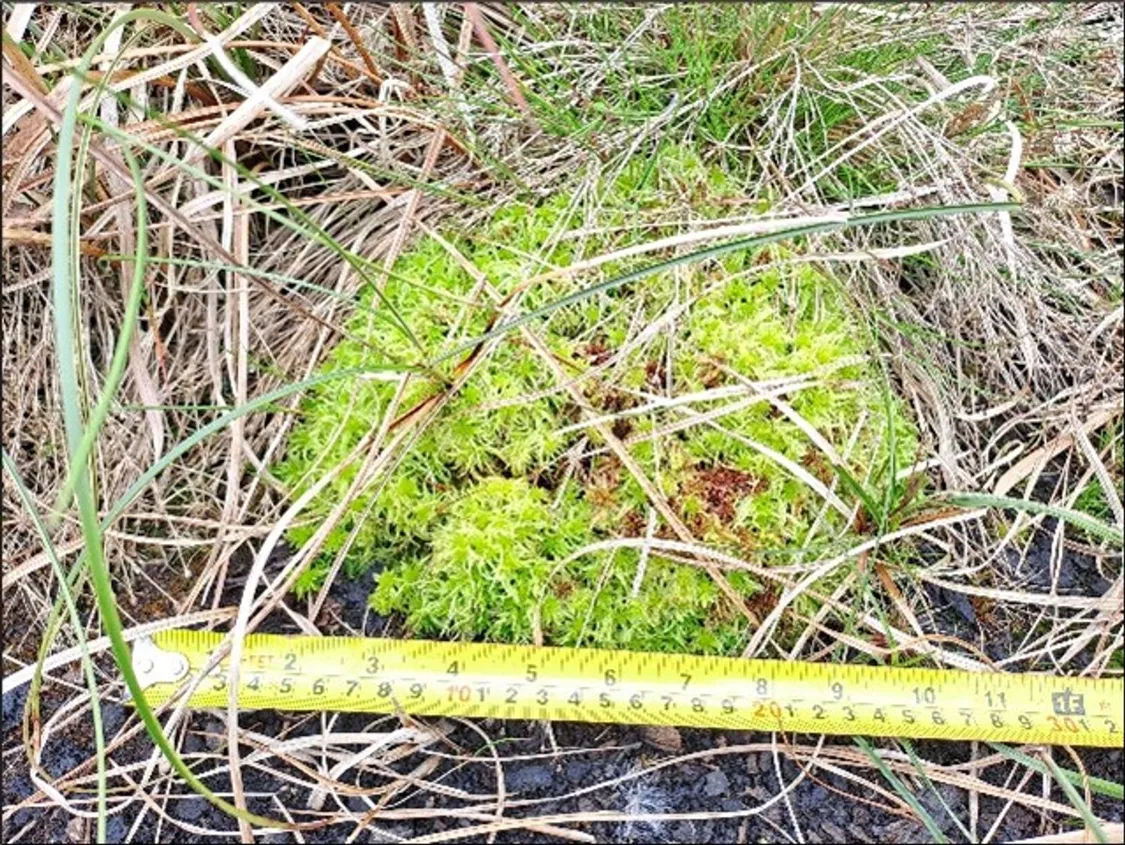
Example of Sphagnum plug plated among Bog cotton (Eriophorum angustifolium) and other establishing vegetation at Esker bog Co. Offaly.
